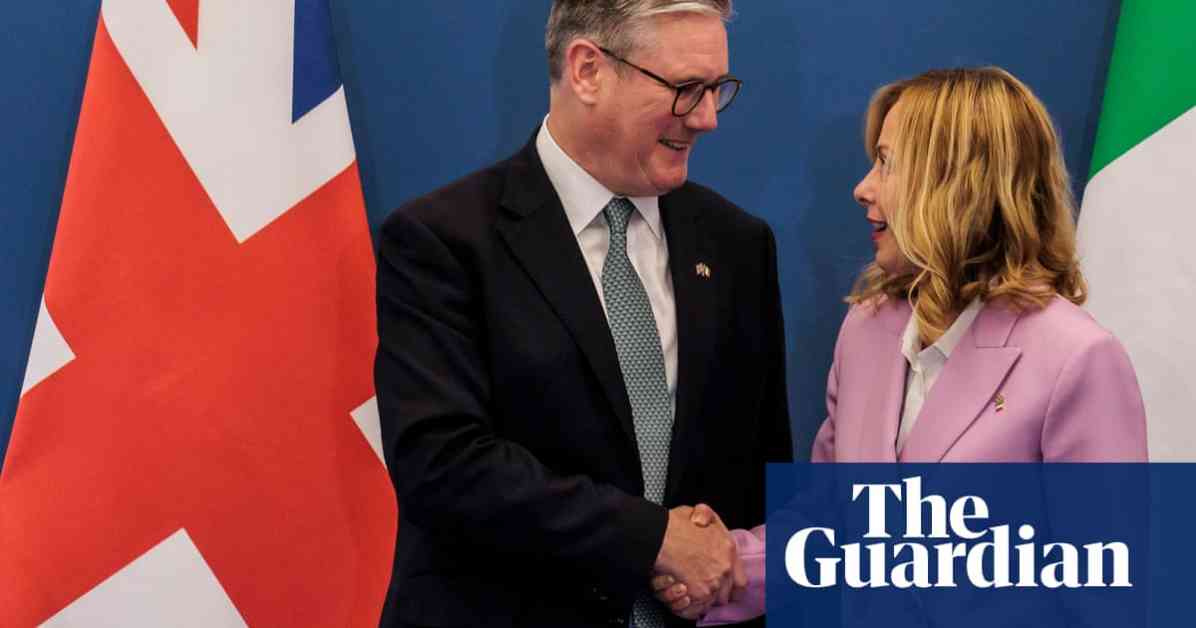Keir Starmer, the leader of the UK’s Labour Party, has expressed keen interest in the recent Italy-Albania migration deal proposed by Italian Prime Minister Giorgia Meloni. The UK has pledged to provide £4 million in support of Meloni’s controversial crackdown on irregular migration. During a press conference in Rome, Meloni and Starmer discussed the importance of the relationship between the UK and Italy, with a particular focus on strategies to prevent migrants from reaching Italian shores.
Interest in Migration Deal
Starmer’s visit to Rome highlighted the significance of the migration deal between Italy and Albania. While the agreement is still in its final stages, Starmer and Meloni engaged in discussions on how to enhance cooperation between their respective countries to address the challenges posed by irregular migration. The UK’s interest in the deal underscores the need for collaborative efforts to tackle the root causes of human trafficking and prevent illegal migration.
Meloni emphasized the importance of international cooperation in dismantling human trafficking networks, stating that no single nation can effectively address this issue alone. Both Italy and the UK are exploring ways to strengthen their law enforcement agencies’ collaboration to combat illegal migration. The mutual interest in the Albania deal reflects a shared commitment to enhancing bilateral relations and promoting cooperation within the framework of post-Brexit rules.
Pragmatic Approach
Starmer commended Italy’s pragmatic approach to addressing the challenges of irregular migration, noting the country’s success in reducing the number of illegal migrants. He praised Meloni’s proactive measures to tackle the issue at its source, emphasizing the importance of upstream work and enforcement in curbing illegal migration. The Labour leader highlighted the need for practical solutions and the exchange of best practices among allies to effectively manage migration issues.
The UK’s newly appointed border security commander, Martin Hewitt, accompanied Starmer during his visit to the National Coordination Centre in Rome. Both leaders agreed to enhance cross-border collaboration and learn from Italy’s successful strategies in reducing illegal migration by 60% over the past year. The discussions focused on implementing measures that align with international humanitarian law while effectively addressing the challenges posed by irregular migration.
Investments and Partnerships
In addition to migration-related discussions, Starmer announced significant Italian investments in the UK, totaling nearly half a billion pounds. Leonardo, a leading aerospace and security company from Italy, committed £435 million to enhance its Yeovil sites. Similarly, Marcegaglia, a prominent steel manufacturer, pledged £50 million to build a new clean steel electric arc furnace in Sheffield, creating 50 new jobs. These investments underscore the strong economic ties between Italy and the UK, highlighting the potential for further collaboration in various sectors.
The partnership between Italy and the UK extends beyond migration issues, encompassing initiatives to promote economic growth and create employment opportunities. The investments from Italian companies demonstrate confidence in the UK market and a commitment to fostering innovation and sustainable development. Starmer’s visit to Italy not only focused on migration cooperation but also highlighted the potential for enhancing bilateral trade and investment relations between the two countries.
In conclusion, Keir Starmer’s interest in the Italy-Albania migration deal reflects a broader commitment to addressing the challenges of irregular migration through international cooperation and pragmatic solutions. The discussions between Starmer and Meloni underscore the importance of collaboration in tackling complex migration issues and fostering strong bilateral relations. The UK’s support for Italy’s efforts to curb illegal migration and promote economic growth further solidifies the partnership between the two countries. As both nations continue to navigate the complexities of migration management, their shared commitment to cooperation and mutual respect remains essential in addressing global challenges effectively.












